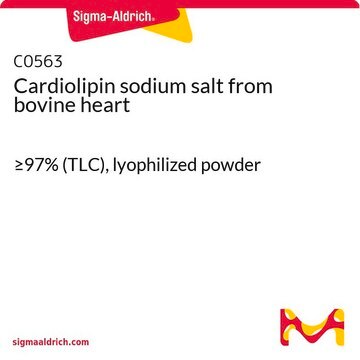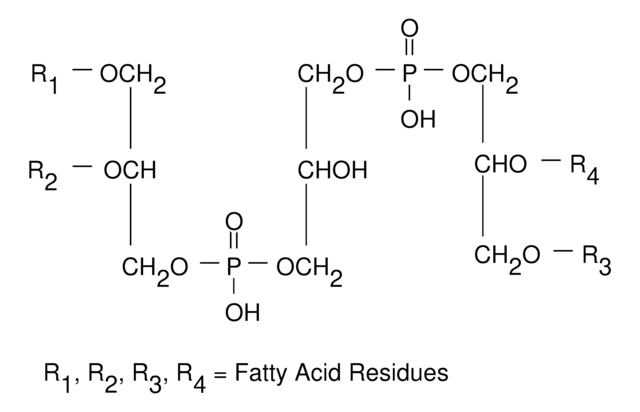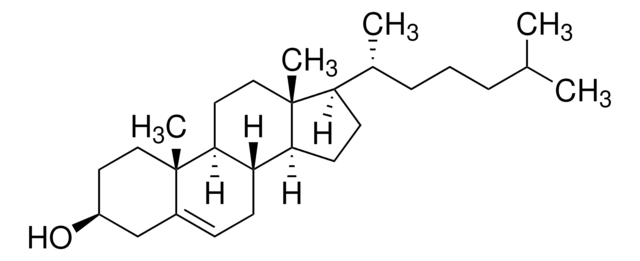710335P
Avanti
18:1 Cardiolipin
Avanti Polar Lipids
Synonym(s):
tetraoleoyl cardiolipin; 1,1′,2,2′-tetra-(9Z-octadecenoyl) cardiolipin (sodium salt); CL(1′-[18:1(9Z)/18:1(9Z)],3′-[18:1(9Z)/18:1(9Z)])
About This Item
Recommended Products
description
1′,3′-bis[1,2-dioleoyl-sn-glycero-3-phospho]-glycerol (sodium salt)
assay
>99% (TLC)
form
powder
packaging
pkg of 2 × 100 mg (710335P-200mg)
pkg of 5 × 100 mg (710335P-500mg)
pkg of 1 × 25 mg (710335P-25mg)
manufacturer/tradename
Avanti Polar Lipids
lipid type
phospholipids
cardiolipins
shipped in
dry ice
storage temp.
−20°C
General description
Application
- to prepare pure (100%) cardiolipin vesicles
- to measure the intensity of cytochrome c peroxidase activity by luminescence assay
- to measure the fluorescence of cytochrome c Trp59 immobilized in biosensor chip
- to study the association of cytochrome c with anionic phospholipids
- in the preparation of liposomes for reconstitution of mechanosensitive channels from bacteria
- in the immobilization on lipophilic biosensor L1 chip surface
- as lipid substrate in peroxidase oxidation assay
Biochem/physiol Actions
Packaging
also commonly purchased with this product
wgk_germany
WGK 3
flash_point_f
755.6 - 820.4 °F
flash_point_c
402 - 438 °C
Certificates of Analysis (COA)
Search for Certificates of Analysis (COA) by entering the products Lot/Batch Number. Lot and Batch Numbers can be found on a product’s label following the words ‘Lot’ or ‘Batch’.
Already Own This Product?
Find documentation for the products that you have recently purchased in the Document Library.
Our team of scientists has experience in all areas of research including Life Science, Material Science, Chemical Synthesis, Chromatography, Analytical and many others.
Contact Technical Service


